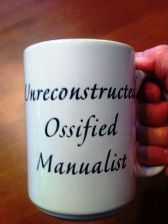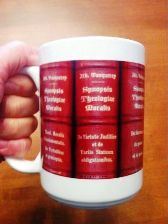QUAERITUR: Is sherry valid matter for the consecration during Mass?
From a reader:
There had been several discussions recently about the topic of valid matter for the Eucharist, mostly related to low-gluten hosts and hosts using matter other than wheat. This made me remember something that happened at my parish while I was a kid. I grew up in the Rochester diocese, which, suffice it to say, is not known for widespread fidelity to the Church’s disciplines. One Sunday, the pastor asked each family of the parish to contribute a bottle of wine to be used for Communion for the subsequent Sundays. On one such Sunday, the wine used to consecrate the Precious Blood was sherry.
Since sherry is a fortified wine (containing both grapes and other spirits), would this have made the Sacrament invalid? Would the same rules that pertain to the host also apply to the wine used for consecration? Either way, it seemed to have been a well-intentioned but sketchy gesture on the part of the priest.
I have tackled this before, but it is worth repeating.
It is of divine institution that the only valid substances for transubstantiation are, for the Body of the Lord, bread made from wheat and, for the Precious Blood, wine made from grapes or raisins (dessicated grapes). The grapes used must be ripe, which rules out “wine” such as verjus. The wine for Mass can be red, white, dry, sweet, whatever. Some prefer red because it resembles blood. Some prefer white because it is easier to clean the linens afterward.
Sometimes questions come up about the use of wine which has very low alcohol content, called mustum, a wine which had the fermentation process halted by rapid freezing. That is a valid substance because it is from grapes and the natural fermentation process began, making it wine. It has an artificially low alcohol content, but mustum is consider valid wine.
However, there is the other end of spectrum to consider: wine which has an artificially high alcohol content. Sometimes alcohol distilled from wine is added to wine in order to preserve it against spoiling or changing to vinegar. This addition of wine alcohol produces “fortified wine”. The usual types of “fortified wine” we encounter are port, sherry, madeira, marsala, and vermouth.
 Fortified wines are valid matter so long as the wine-spirit added was distilled from grapes, that the quantity of alcohol added, together natural content from the fermentation, does not exceed 18% and that the additional alcohol is added during the process of fermentation. You can read a good, brief article on altar wine in the Catholic Encyclopedia.
Fortified wines are valid matter so long as the wine-spirit added was distilled from grapes, that the quantity of alcohol added, together natural content from the fermentation, does not exceed 18% and that the additional alcohol is added during the process of fermentation. You can read a good, brief article on altar wine in the Catholic Encyclopedia.
Also, because we Unreconstructed Ossified Manualists, we check our old theology manuals, such as  Tanqueray’s Theologia Dogmatica.
Tanqueray’s Theologia Dogmatica.
We find in Tanqueray that wine for Mass has to be from ripe grapes, it can be of any color, not corrupted, and not frozen at the time of consecration. Citing the Missale Romanum we are warned against wine that is turning bad. As a matter of fact, if the priest is doubtful about it, he sins gravely by consecrating it. “Si fuerit aliquantulum acre, ait Missale, conficiens graviter peccati.”
By the way, the coffee mug which appears here is great for Mystic Monk Coffee! It’s swell!
I would rule out vermouth, because herbs and so forth are added.
I would not use sherry because, if I am not mistaken, the addition of the spirits takes place after fermentation.
Marsala seems to be okay, so long as it is 18% or less.
Vin Santo, from dessicated grapes, is fine. As the name implies, it is wine for the altar!
Port is valid, 18% or under.
All this information provides ample motive to stick with altar wines made by ecclesiastically approved vintners (unless you can’t for some reason). If you have a doubt, Fathers, don’t use it. Don’t screw around with validity of sacraments.
 Send to Kindle
Send to Kindle
